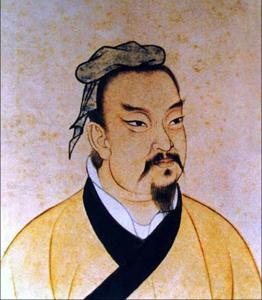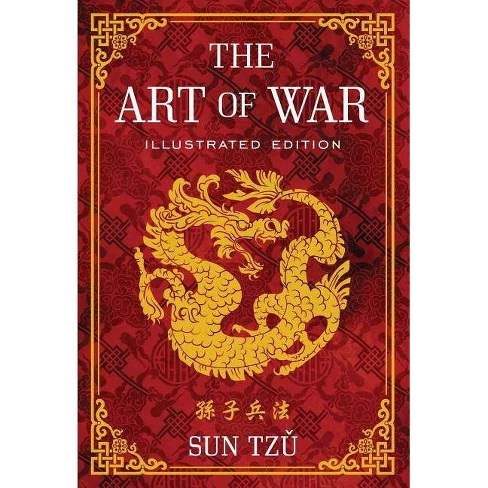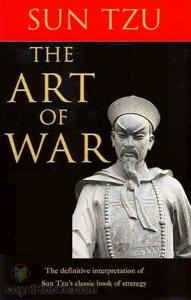Content Menu
● Sun Tzu: The Author
● The Content of *The Art of War*
>> 1. Strategic Planning
>> 2. Know Your Enemy
>> 3. Flexibility in Tactics
>> 4. Psychological Warfare
>> 5. Logistics and Supply Lines
>> 6. Diplomacy Over War
● Historical Significance
● Contemporary Relevance
● Conclusion
● Related Questions
>> 1. What are the main themes discussed in *The Art of War*?
>> 2. How has *The Art of War* influenced modern business practices?
>> 3. When was *The Art of War* written?
>> 4. Who was Sun Tzu?
>> 5. Why is *The Art of War* still relevant today?
*The Art of War* is a seminal work on military strategy and tactics, traditionally attributed to the ancient Chinese general and philosopher Sun Tzu. His insights into warfare have transcended time and culture, influencing not only military leaders but also business executives, politicians, and strategists across various fields. This article delves into the life of Sun Tzu, the contents of *The Art of War*, its historical significance, and its enduring relevance in contemporary society.

Sun Tzu: The Author
Sun Tzu, whose real name was Sun Wu, is believed to have lived during the Eastern Zhou period of ancient China, specifically around the 5th century BCE. He served as a military general for the state of Wu during a tumultuous time in Chinese history known as the Spring and Autumn period. His contributions to military thought are encapsulated in *The Art of War*, which is considered one of the earliest and most influential treatises on military strategy.
While much about Sun Tzu's life remains shrouded in mystery, historical texts suggest he was not only a brilliant strategist but also a philosopher who understood the complexities of human nature and leadership. His teachings emphasize the importance of adaptability, intelligence, and psychological warfare.
The Content of *The Art of War*
*The Art of War* is divided into 13 chapters, each addressing different aspects of warfare. The chapters cover topics such as planning, strategy, tactics, logistics, and the importance of understanding both oneself and the enemy. Here's a brief overview of some key themes:
1. Strategic Planning
Sun Tzu emphasizes that successful warfare begins with careful planning. He outlines five fundamental factors that must be considered: moral influence (Tao), weather conditions, terrain, command structure, and doctrine. Understanding these elements can lead to victory before any battle is fought.
2. Know Your Enemy
One of Sun Tzu's most famous maxims is "Know your enemy and know yourself and you can fight a hundred battles without disaster." This principle highlights the necessity for intelligence gathering and understanding both one's own strengths and weaknesses as well as those of the opponent.
3. Flexibility in Tactics
Sun Tzu advocates for flexibility in military tactics. He argues that rigid strategies can lead to defeat; instead, commanders should be prepared to adapt their plans based on changing circumstances on the battlefield.

4. Psychological Warfare
The text discusses the importance of psychological factors in warfare. Sun Tzu believed that winning without fighting was the ultimate goal. Deception plays a crucial role in this philosophy; misleading the enemy can lead to victory with minimal loss.
5. Logistics and Supply Lines
Effective logistics are critical to sustaining an army. Sun Tzu warns against prolonged warfare due to its draining effect on resources. He stresses that armies must be well-supplied and capable of maintaining their strength throughout campaigns.
6. Diplomacy Over War
Interestingly, while *The Art of War* is a manual for military strategy, it also emphasizes that war should be avoided whenever possible. Diplomacy is portrayed as a preferable alternative to direct conflict.
Historical Significance
Since its composition, *The Art of War* has been revered across East Asia and beyond. It became part of China's Seven Military Classics during the Song Dynasty and has influenced numerous military leaders throughout history.
In Japan, for instance, it was studied by samurai warriors who applied its principles during feudal conflicts. Notable figures such as Oda Nobunaga and Tokugawa Ieyasu were known to integrate Sun Tzu's teachings into their strategies during Japan's unification period.
In modern times, leaders like Mao Zedong utilized insights from *The Art of War* during the Chinese Civil War against Chiang Kai-shek's Nationalist forces. Its principles have also been adopted by military strategists in various conflicts around the world.
Contemporary Relevance
Today, *The Art of War* continues to be relevant far beyond military applications. Its teachings are often applied in business strategies, sports coaching, political campaigns, and even personal development.
Business leaders draw parallels between competitive markets and battlefield tactics outlined by Sun Tzu. Concepts such as strategic positioning, understanding competitors, and leveraging strengths are integral to both successful business practices and effective military operations.
Moreover, many self-help books reference *The Art of War*, emphasizing its philosophical insights into overcoming obstacles and achieving success through strategic thinking.
Conclusion
In conclusion, *The Art of War* by Sun Tzu stands as a timeless guide on strategy that has shaped military thought for centuries while simultaneously influencing various aspects of modern life. Its principles encourage careful planning, adaptability, psychological insight, and diplomatic resolution over conflict—lessons that remain applicable across diverse fields today.
As we reflect on Sun Tzu's wisdom, it becomes clear that understanding human nature and strategic thinking are essential components not only in warfare but also in navigating life's challenges effectively.

Related Questions
1. What are the main themes discussed in *The Art of War*?
*The main themes include strategic planning, understanding oneself and one's enemy, flexibility in tactics, psychological warfare, logistics management, and prioritizing diplomacy over conflict.*
2. How has *The Art of War* influenced modern business practices?
*Many business leaders apply its principles regarding competition analysis, strategic positioning, resource management, and negotiation tactics.*
3. When was *The Art of War* written?
*It is believed to have been written during the 5th century BCE during China's Eastern Zhou period.*
4. Who was Sun Tzu?
*Sun Tzu was an ancient Chinese military general and strategist credited with writing *The Art of War*, which outlines key principles for successful warfare.*
5. Why is *The Art of War* still relevant today?
*Its insights into strategy, human psychology, adaptability in conflict situations, and leadership principles continue to resonate across various fields beyond military applications.*
































